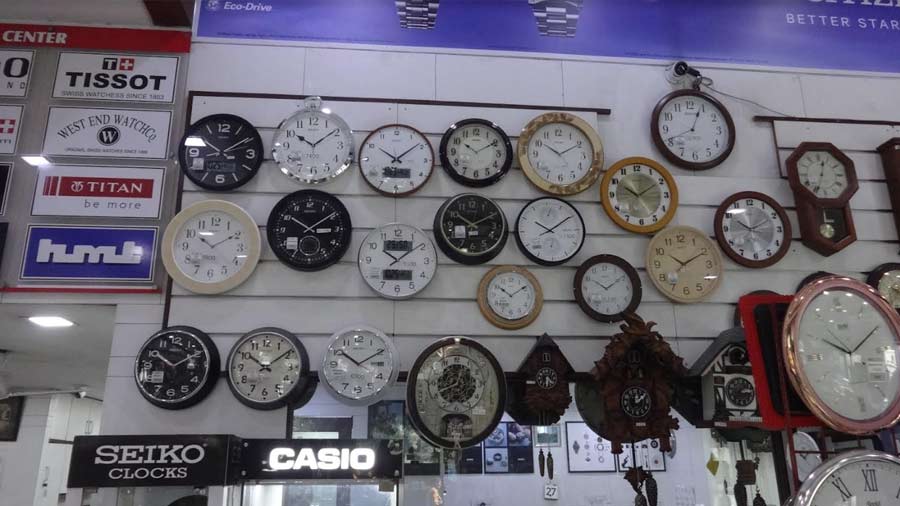I arrived in Calcutta, as Kolkata was then called, by train from Jamshedpur in early January, 1963. I was six years old and vividly recall my first impressions of this magnificent city. Arriving in Howrah station and crossing the great Howrah Bridge was overwhelming! There were more people than I had ever seen before — jostling for space with rickshaws, taxis, horse drawn carriages, trams and red double decker buses!
As we drove through Dalhousie Square onto Red Road, my father described how British Spitfire aircrafts had used Red Road as a runway during World War II. Driving past the gleaming white Victoria memorial, I was fascinated to see policemen mounted on horseback.
That evening we went on a family outing to Park Street to celebrate my sister’s birthday. Christmas decorations were still on display, giving the entire area a festive feeling. My father had parked his green Morris Minor near the Chowringhee Sales Bureau (now the Jeep Showroom) and I remember being captivated by a big Santa Claus on a sledge in front of Bombay Photo Stores (now an electronics and a luggage store). I stood and gazed at it awestruck until I was dragged away. A visit to India’s Hobby Centre followed and it was like heaven for a small boy — to this day it is a store that I love.
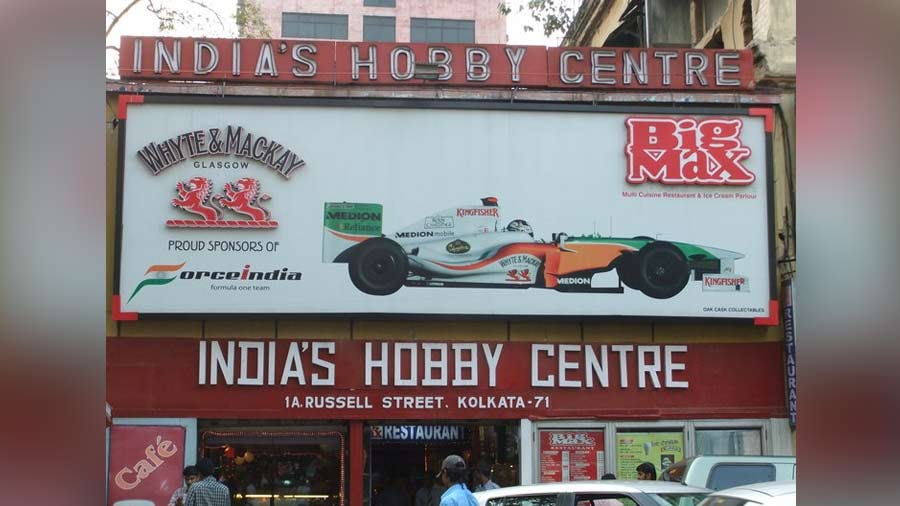
India’s Hobby Centre – heaven for the young @India’s Hobby Centre/Facebook
Kolkata has changed a lot since I came to the city in 1963, and sadly not all of the changes have been good. We have lost many wonderful heritage buildings and along with them valuable social, environmental, and economic assets of our city.
Modern organised retailing in Kolkata was started by the British after the Indian Rebellion of 1857. Large Departmental stores such as the Army and Navy stores, Hall and Anderson, and the grandest of them all, Whiteaway, Laidlaw & Co., were located along Chowringhee, where clients could draw up in their horse-drawn carriages. These shops catered to British, European, and an affluent Indian clientele. With post-independence import restrictions, almost all of these British-owned and British-run stores had closed by the end of the 1960s.
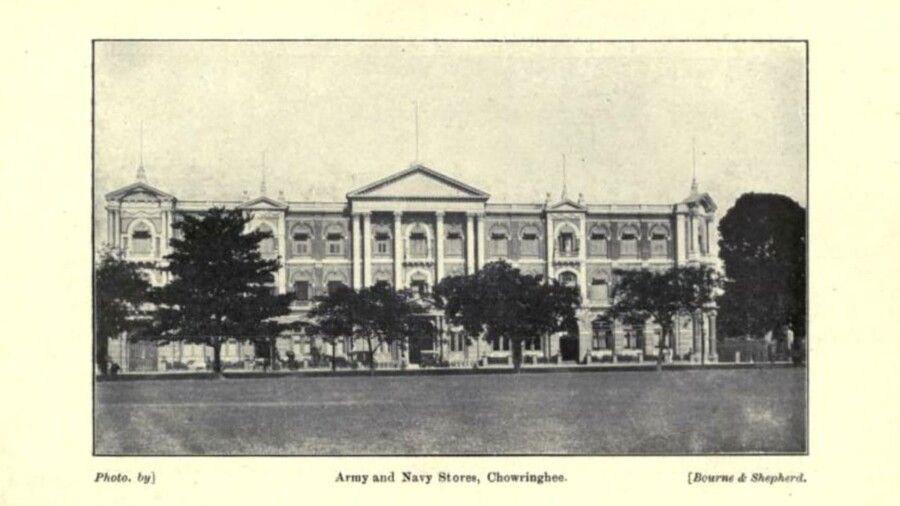
The Army and Navy Stores ‘Recollections of Calcutta For Over Half A Century’, Montague Massey/archive.org
Indian retailers started off in a much more humble manner. The earliest Indian retailers started their activities in small stalls in the bazaars of north Calcutta, where large sections of the local population lived. As their confidence and clientele grew, Indian retailers started venturing south — to Dalhousie Square, Esplanade, New Market and Park Street. As the burgeoning city grew southwards, retailers followed, expanding into areas such as Bhowanipore, Hazra Road, Kalighat and Ballygunge. While their British counterparts no longer exist, many of these Indian retail shops are still going strong. The youngest shop described in this book is 70 years old and the oldest is 214! Most of these shops are still run by the same family and are still in the same location where they were originally set up.
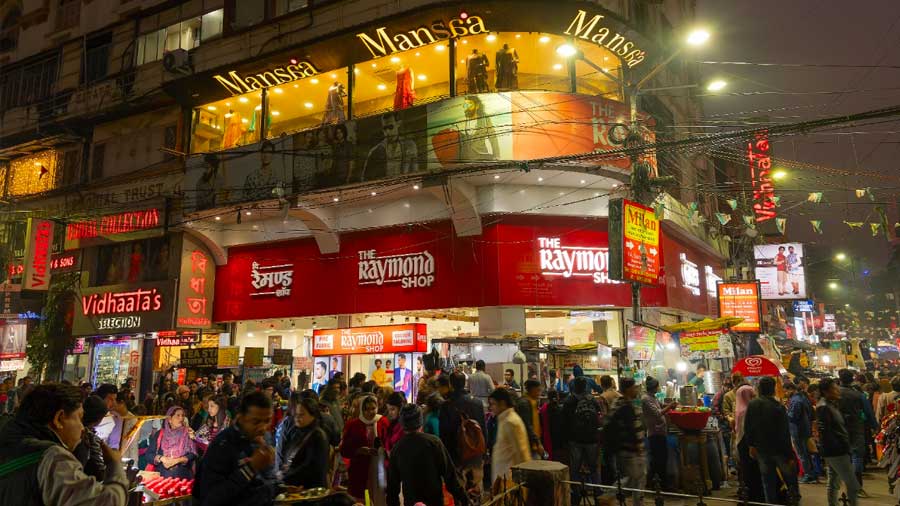
The earliest Indian retailers started their activities in small stalls in the bazaars of north Calcutta. As their confidence and clientele grew, they ventured south — to Dalhousie Square, Esplanade, New Market and Park Street TT archives
I have shared the stories of only the oldest shop in each category. But in many categories, for example jewellery, there are several shops over 100 years old. For those who love Kolkata, and recognise the Bengali penchant for sweets, it will come as no surprise that I found 15 mishti (sweetmeat) shops that were over 100 years old!
What is the secret behind the success and survival of these heritage Kolkata retailers? As they shared their stories with me, I found there were certain common themes that resonated across each of these stores:
Visionary and Charismatic Founder: Each of these stores was started by an entrepreneur who spotted a latent market need, and took the risk of starting a business to cater to this need.
Customer Service: Each of these shops intrinsically understood CRM — Customer Relationship Management — much before it became a buzzword in modern management. The needs of their customers always came first.
Values: Something that all these shops had in common was a strong and ethical sense of values. Business was seen as a service to the community and profits would follow. Almost uniformly, owners were low key and god-fearing, and not at all flamboyant in their lifestyle.
Sense of Family: Each of these shops started as a joint family business. Till today all of them remain family-run and many of the families still live together under the same roof. There is a deep sense of respect for family elders. Employees are also treated as part of the extended family.
Excellence & Innovation: Each of these shops excelled in their chosen line of business and were known for their innovative ideas. All of them had a reputation of never compromising on quality. Future generations also worked very hard to protect and build the family reputation.
Location: It is said that retailing is location, location, location! All the Heritage retailers in this book had the foresight to choose excellent locations that continue to be visible, accessible, and meet the needs of their communities — hallmarks of a good retail location.
Having spent over three decades in the retail industry, I believe that these are stories that need to be told because the story of retail is the story of a city.
In the stories of these shops, are the stories of how the founding entrepreneurs migrated to the city of Calcutta to seek their livelihood. As the city grew in affluence and the lifestyle of people changed, these retailers adapted to the changes taking place to remain relevant to their customers. Each one of the shops chronicled in this book learned to adapt and innovate to remain relevant.
In the fast-changing world in which we live, these heritage retailers provide an insight into the strategies that worked to keep them relevant over the past 100 years. However, as e-retail begins to penetrate the Indian market, will these heritage retailers be able to compete? I believe they can, provided they continue to innovate and use technology to serve the needs of their customers.
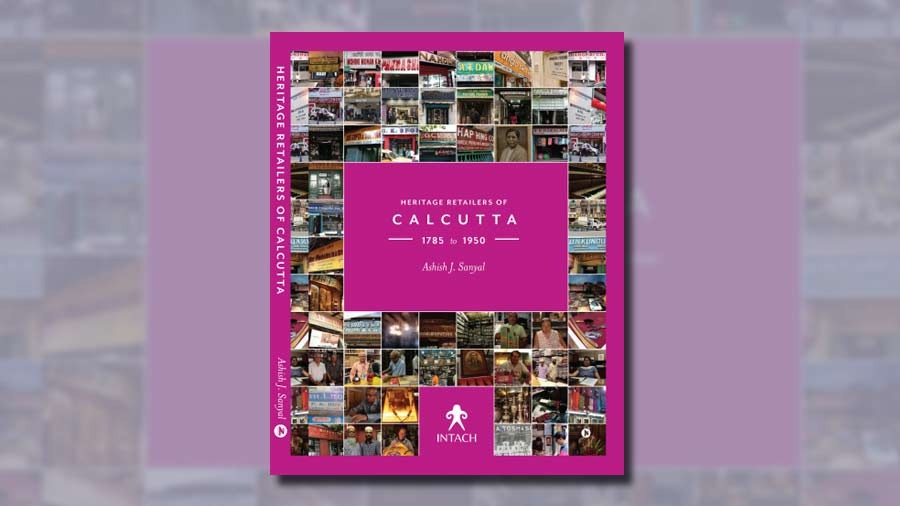
--------------------------------------------------------------------
1908
ANGLO SWISS WATCH CO. 6, B.B.D. Bag (formerly Dalhousie Square), next to HDFC Bank, Kolkata – 700 001
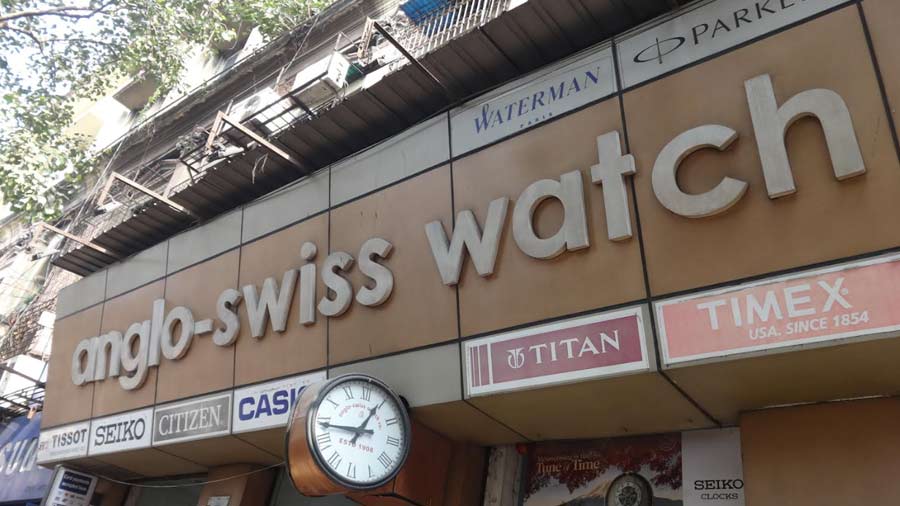
Indrajit Dutta
As the name of the shop would suggest, the Anglo Swiss Watch Co. started out as a joint venture, but of a romantic kind! The story goes that a Swiss watchmaker and jeweller by the name of Mr. Hamond Grammiter, who was visiting Calcutta (sometime in the early 20th century), fell in love with and married an Anglo-Indian lady and established a watch and jewellery shop in Dalhousie Square, where it still stands today. The Grammiters left India in 1943 after selling the company to Mr. S.M. Sayeed who decided to wind up the jewellery business and focus on trading and servicing Swiss watches — a business that continues to grow and prosper till date.
Mr. S.M. Sayeed used to visit Switzerland frequently to meet his principals and in 1946 he married a Swiss lady, Miss Anna Louisa, who converted to Islam. Anna Louisa was the much loved and revered head of the family after her husband passed away in the early 1990s. She continued to live in Calcutta till the age of 93, passing away in 2015.
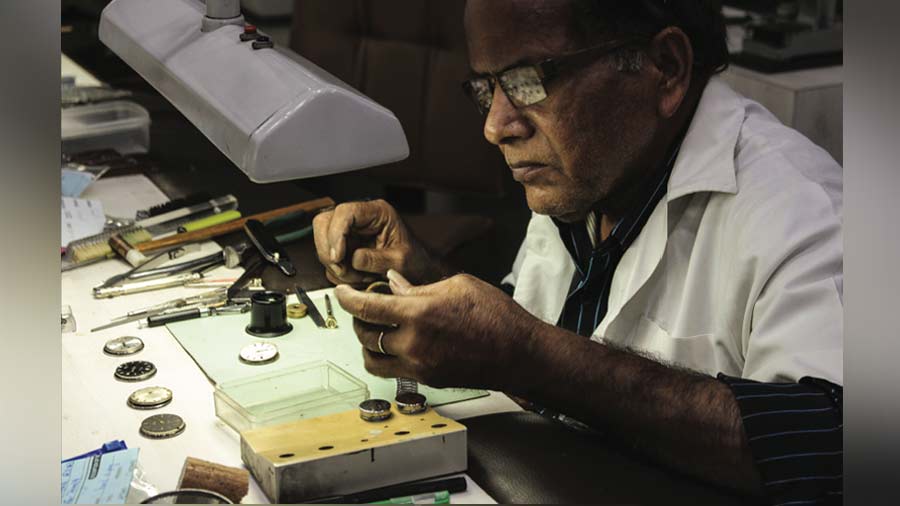
The shop’s specialisation remains the repair and servicing of watches From ‘Heritage Retailers Of Calcutta: 1785 to 1950’
The second generation of the company came into the business in the 1970s and weathered many storms. Imports had stopped as the government of India was veering towards a socialist path and people were apprehensive about buying expensive Swiss watches. Mr. S.M. Sayeed however consolidated the service part of the business and began manufacturing wall clocks and tower clocks in their factory in Entally. They also continued with the manufacture, repair, and maintenance of tower clocks. The family presented one such tower clock to the Kolkata police which can be seen standing sentinel opposite Lal Bazar Police Headquarters.
Grandson Mr. Sajid Ismail, a trained Horologist from the famous Swiss Watch Institute and a graduate of the Watches of Switzerland Training Education Program (WOSTEP), his cousin Mr. Ahmed Sualeh, and his nephew Danish Sualeh run the business today. While they continue to sell Swiss watches, they also sell Japanese and Indian watches. But their specialisation remains the repair and servicing of watches. While I was in the shop, an elderly gentleman in his 70s walked in with an old Rolex watch which had belonged to his father. The adage of never really owning a Rolex watch but inheriting it was being played out before my eyes!
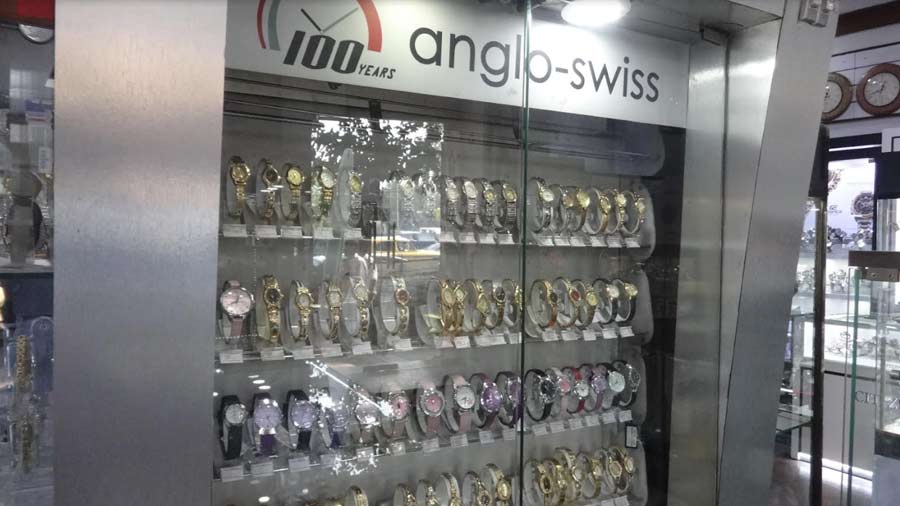
A display of watches Indrajit Dutta
Post the 1991 liberalisation, demand for Swiss watches picked up again and Sajid, Ahmed, and Danish continued to take care of the business. They have diversified into selling mobile telephones and security and surveillance systems but their core business remains servicing of watches for which they are the largest and most respected company in the Eastern region.
Asked if he remembers his grandfather Mr. S.M. Sayeed, Sajid Ismail has fond memories of coming to the shop as a child and walking down to the pastry shop in the Great Eastern Hotel with his grandfather. On one of their visits his grandfather said to him, “In business there are ups and downs but if you look after your people as an extension of the family, no harm can come to you.”
Sajid Ismail practises everyday this cardinal rule of business passed down to him by his grandfather.
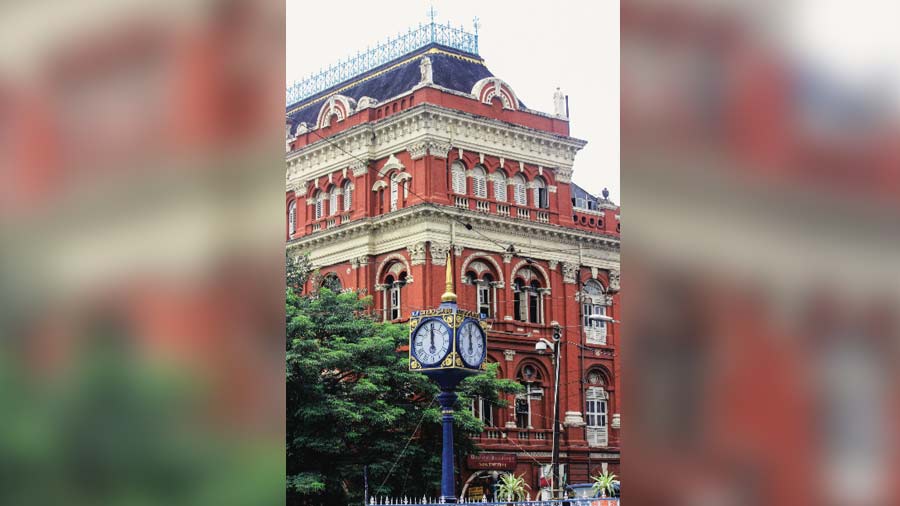
A small tower clock in front of Writers’ Building From ‘Heritage Retailers Of Calcutta: 1785 to 1950’
Get your copy here.
